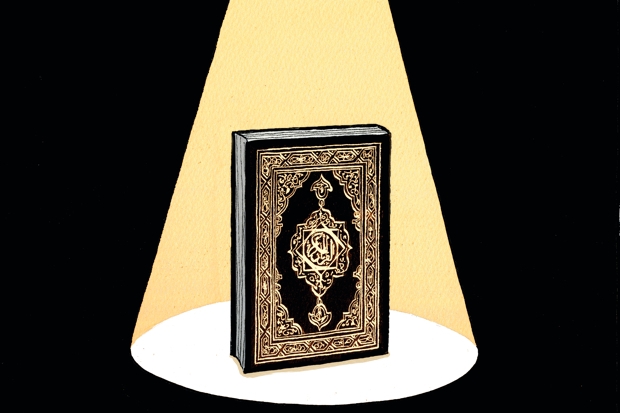Let’s put the question very bluntly: do British Muslims affirm British values, or are they outsiders to our way of life? Or, even more bluntly: can we trust them? It is important that we learn to answer this question with nuance, and not in a self-righteous and simplistic way.
A week before the Tunisian carnage, David Cameron implicitly raised the question, when he said that too many mainstream Muslims were equivocating, seeming to condone Islamic State and to disparage the West –this ‘paves the way for young people to turn simmering prejudice into murderous intent’, he said. His comments, and his planned counter-extremism bill, were strongly condemned by commentators, and also by his former party chairperson Sayeeda Warsi. His implication that ordinary Muslims are to blame will just stoke Islamophobia, they say; we should assume that British Muslims are just as horrified by Islamic State as other Britons are. We must trust the good intentions of our fellow-citizens who are Muslims: otherwise we are implicitly demonizing them.
And of course voices on the right said that Cameron was quite right to demand such vigilance. Of course the terrorists are inspired by Islam, or ‘the worst version of it’, as Douglas Murray put it in The Spectator: let us end the lie that ‘this has nothing to do with Islam’. And so of course it is necessary to ask whether British Muslims are sufficiently explicit in condemning that version.
It sounds contradictory, but I think that both sides are right – and wrong. We need a two-pronged strategy – a ‘dialectical’ one, to speak fancy. We should indeed keep raising the question of whether British Muslim communities are tough enough on the rhetoric that condones extremism, and whether they are affirming British values. We should be horrified at the fact that there are British teenagers who want to go off and be suicide bombers, and should earnestly ask ‘How does this happen?’. We shouldn’t accept this as our ‘new normal’ (as Obama said of mass-shootings). We should expect British Muslims to want to show whose side they are on.
And yet, at the same time, we should also express our strong assumption that the vast majority of Muslims are just as horrified by this as the rest of us, that the extremism has nothing to do with ordinary Islam. We trust you, we must say. Both voices are needed: the ‘bad cop’ voice that asks ‘Can we trust you?’, and the ‘good cop’ voice that says, ‘We do trust you. Of course we do.’ It is by this means that we can nudge British Muslims in an ever more liberal direction. We must keep saying: we trust that you are perfectly good liberals at heart. And it becomes a bit truer.
So, as well as sometimes expressing concern about radicalisation, and maintaining practical vigilance, we must clearly state the following assumption. We assume that, by virtue of living in this country, you affirm the basic British public creed. We trust that you affirm our political system, the rule of law, the principles of equality and individual rights. We trust that you respect our traditions, even though some of these are somewhat alien to you (for example we have a national Church that you cannot fully affirm). And above all we trust that you utterly abhor the tiny minority among you that rejects our way of life, and sees holy glamour in the crusading zeal of a fledgling theo-fascist state.
Because we fundamentally trust you, we must say, we reject the notion that Islam is essentially anti-liberal, theocratic, incompatible with individual rights, with freedom of religion, with equality between the sexes, with acceptance of homosexuality. You disprove this, by being Muslims who affirm British values. We trust that it is only a tiny minority among you who advocate a purist, reactionary form of Islam that calls for violent jihad. In other words, we must assume that the vast majority of British Muslims are, in effect, liberal Muslims. By this I mean Muslims who reject the conservative Muslim view that society needs religious unity, that nonbelievers do not deserve equal treatment, that secularism is a bad thing. There has recently been much talk of whether Islam can reform itself – whether it can reject its violent theocratic tendency and explicitly affirm liberal values. Well, in a sense we must dismiss such a debate as redundant. For we must assume that British Muslims already espouse a reformed, or liberal, form of Islam – one that is compatible with British values. The alternative would be to regard Muslims as an alien presence in our midst, a fifth column. This we must refuse to do.
The strategy I propose could be called tough trust. Through stating our trust in British Muslims, we must remind them of what we expect from them: that they will affirm British values. In the past our trust has been complacent, evasive. Yes, we trust you, we said, but in a brisk, awkward way, nervous of dwelling on the subject. Now we must be more explicit, more prescriptive. We trust that you affirm these values; we trust that you utterly repudiate those values. We must spell it out, but all the time saying, we fundamentally trust you.
So it is simplistic to say that Cameron’s comments put the blame on ordinary Muslims and contribute to the problem of Muslim alienation. He has voiced a necessary warning: Muslim communities must not allow anti-Western rhetoric to take root, they must give no comfort to extremists. Or rather: we trust that you will step up your vigilance against the extremists in your midst. Because we trust that you are part of our society. We trust that you share our values. You do, don’t you?







Comments